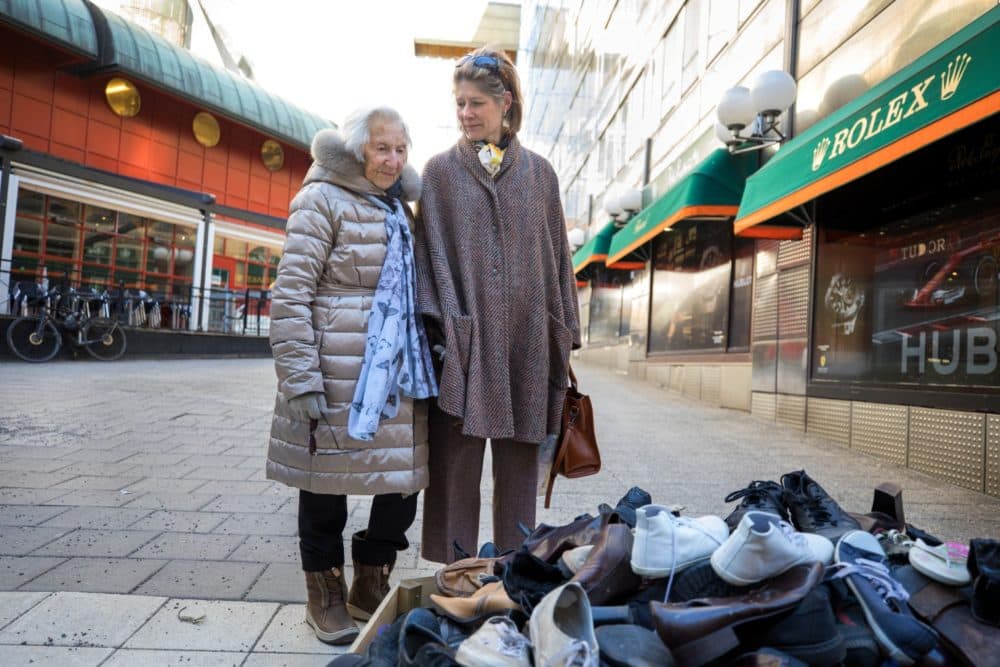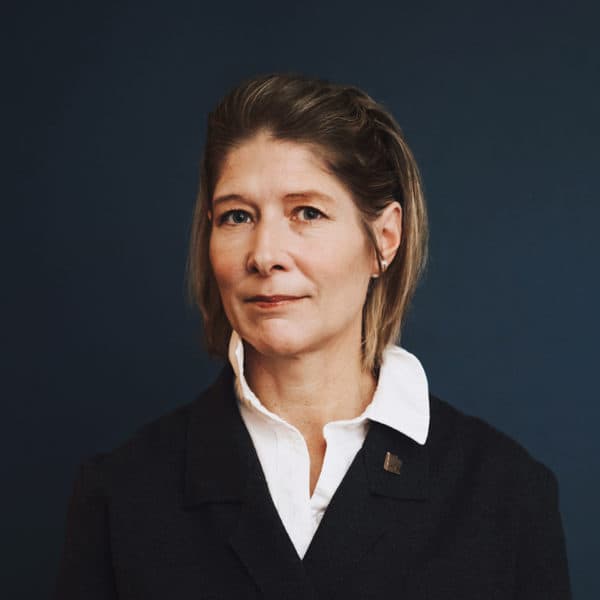Advertisement
Commentary
A letter from Sweden: The far right is shifting public norms

In Sweden, where I live, we have just experienced a national election that represents the culmination of years of intensifying polarization. Anyone living in the United States will recognize the pattern, although for a country as culturally committed to consensus as Sweden, it is particularly shocking. As an American poised to vote in the U.S. midterm elections, the interconnections are foremost in my mind. As a descendant of Nazis who has spent many years immersed in history, I feel intensely what is at stake for democracy and peace globally.
In the run-up to the Swedish election cycle in 2018, my friend, Hédi Fried, invited the leader of Sweden’s Moderate Party for lunch at her apartment. Hédi is a national icon in Sweden — a Holocaust survivor, psychologist and author who has been a warrior for democracy and human rights for the better part of 40 years.
Ulf Kristersson, the leader of the Moderate Party, was one of several party leaders invited to meetings at Hédi’s home, to talk about her experiences and expertise. On the table was a smörgåstorta, or sandwich cake, her favorite Swedish savory pastry. Hédi came to Sweden in 1945 on a Red Cross boat with her younger sister. They were emaciated and sick, having survived several concentration camps; their parents, murdered.

During his meeting with Hédi, Kristersson vowed never to enter any form of cooperation with the Sweden Democrats, a political party that had made significant gains in parliament. The reason: Sweden Democrats represent no ordinary party. After WWII, the party emerged from a neo-Nazi group called Behåll Sverige Svensk (BSS), or Keep Sweden Swedish. Its founders had Nazi affiliations and were even members of Hitler’s Waffen SS. Over the years, the Sweden Democrats have attempted to sanitize their party, but its behavior, even in more recent years, suggests that it cannot escape its compromised beginnings.
Despite all that, as the votes were counted in Sweden’s last national election in September 2022, it became increasingly clear that the Moderate Party could only govern if it entered a coalition with the Sweden Democrats, which, for the first time, overtook the Moderates to become Sweden’s second-largest party. (Sweden’s Social Democrats, the party largely responsible for transforming Sweden from one of Europe’s poorest nations to one of its wealthiest and most progressive, is still the largest political party, but didn’t have a large enough majority to govern.) Needless to say: Kristersson folded, making what many regard as an alliance with the devil.
For someone like me, who has spent decades trying to understand how her grandparents, among millions of other Germans, could have become part of a political force that eventually ushered fascists into the “fine room” of German politics, it all sounds nerve-rackingly familiar. To my friend Hédi, the Holocaust survivor, it is not only the breaking of a promise, but one of many symptoms of Europe's collective forgetfulness about the dangers of allowing the far right into positions of power.

History tells us that it was the same slipperiness of German politics during the early 1930s that brought the Nazis to power. Hitler was given the reins based on the misperception of the conservative elite that they could control and eventually replace him.
While, to date, the Sweden Democrats have not been given any ministerial posts in the new government, early on in the negotiations, their leader, Jimmie Åkesson, was adamant that there would be a price for this arrangement. So far, among other muscular roles, the Sweden Democrats have been given the chairmanship of parliament’s foreign affairs committee (in the run-up to a year in which Sweden is to assume the presidency of the European Council).
Some might say that Hédi and I are just overreacting, that we are so obsessed with history that we cannot see clearly in this new time with its new actors. They might say, as even some minorities in Sweden (including some Jews) who find common cause with Sweden Democrats' anti-Muslim stance, that we are ignoring the realities of violent crime in immigrant-dense areas of Sweden, and the rise of problems such as antisemitism. Worst of all, they might say we are denying the very thing that both of us have been working to strengthen through our activism: democracy itself, in which the outcome of free and fair elections must be respected.

Despite its nationalistic anti-globalist bluster, the Sweden Democrats have for decades been interconnected with the rise of the far right globally, which has contributed to the overall erosion of democracy. Historian Tim Snyder recently summarized the existential seriousness of this phenomenon for humans when he argued that “the future is democracy or not at all.” Together with western Europe’s far-right and extremist parties, Sweden Democrats have long sought legitimacy via European-wide networks and alliances, most recently through the European Conservatives and Reformists group (ECR) in the European Parliament. While there are shades of difference between Europe’s far-right parties, all of them are challenged by a problem intrinsic to their brand of politics: A platform built on finding scapegoats for a nation’s problems doesn’t lead to good governance, including the respect of human rights, and it encourages the expression of dissatisfaction through violence.
In Sweden, this penchant for violence was chillingly illustrated on a summer evening in Stockholm in 2014, when members of the Sweden Democrats' leadership, armed with lead pipes, shouted sexist and racist remarks and physically abused, among other people, a comedian of Iranian-Kurdish origin who previously had been heckled by the party. All three Sweden Democrats members lied to the media when questioned about the incident, and subsequently only one of them left the party. No disciplinary actions were taken against the other two, and, despite ample evidence provided by a video and confirmation by Swedish human rights watchdog EXPO, Åkesson claimed that the events had been misrepresented. Most worryingly, the incident had no impact on growing support for the Sweden Democrats, illustrating the way that the far right shifts public norms about what is acceptable behavior.
It’s hard not to see the analogy to the threatening and violent milieu that Trumpism has encouraged, including the events that took place at the U.S. Capitol on Jan. 6, 2021.

As a new war rages on the European continent, the threat that the rise of political forces such as the Sweden Democrats pose to all of us, wherever we are, relates to the way that the global far-right ecosystem has been nourished by disinformation coordinated and abetted by Moscow. Arguably, Putin’s war in Ukraine, which looms over the world with its threat of nuclear escalation, is less likely to have happened had Putin not been encouraged by his perception of political and social chaos and splintering in the West — which Russian trolls have been facilitating for years by their support of far-right messaging.
In the public crowing of Sweden Democrats at the election of Donald Trump — a president who once invited Russia to assist him in undermining his political opponent, and who later claimed that he trusted Putin’s word over that of his own intelligence agencies — and their curious glowing support for his ill-informed apocalyptic portrayal of Sweden, a liberal democracy a stone’s throw from St. Petersburg, they played into Putin’s hands.
In today’s world, more than ever, what happens in Sweden matters in America and vice versa. Kristersson, the Moderate leader, never returned Hédi’s follow-up call after that meeting.
So, I am calling America. How will we respond?
